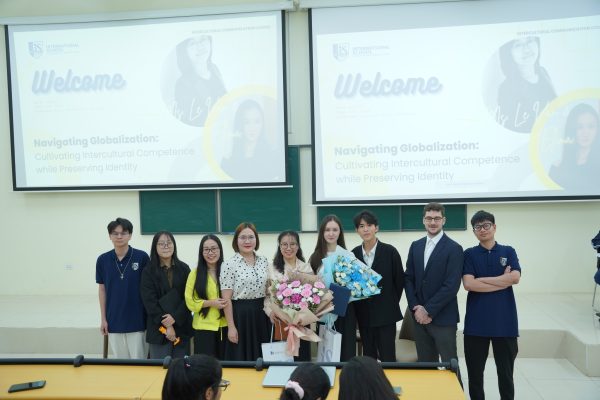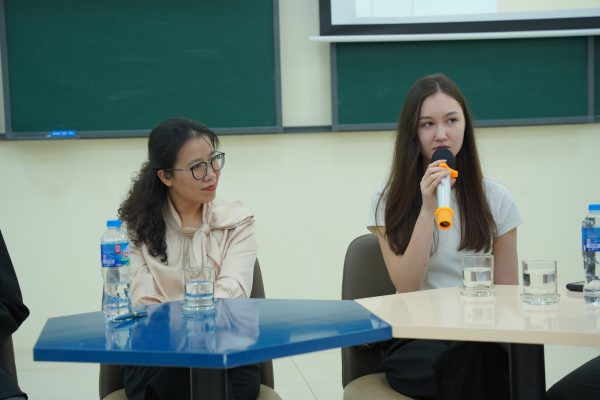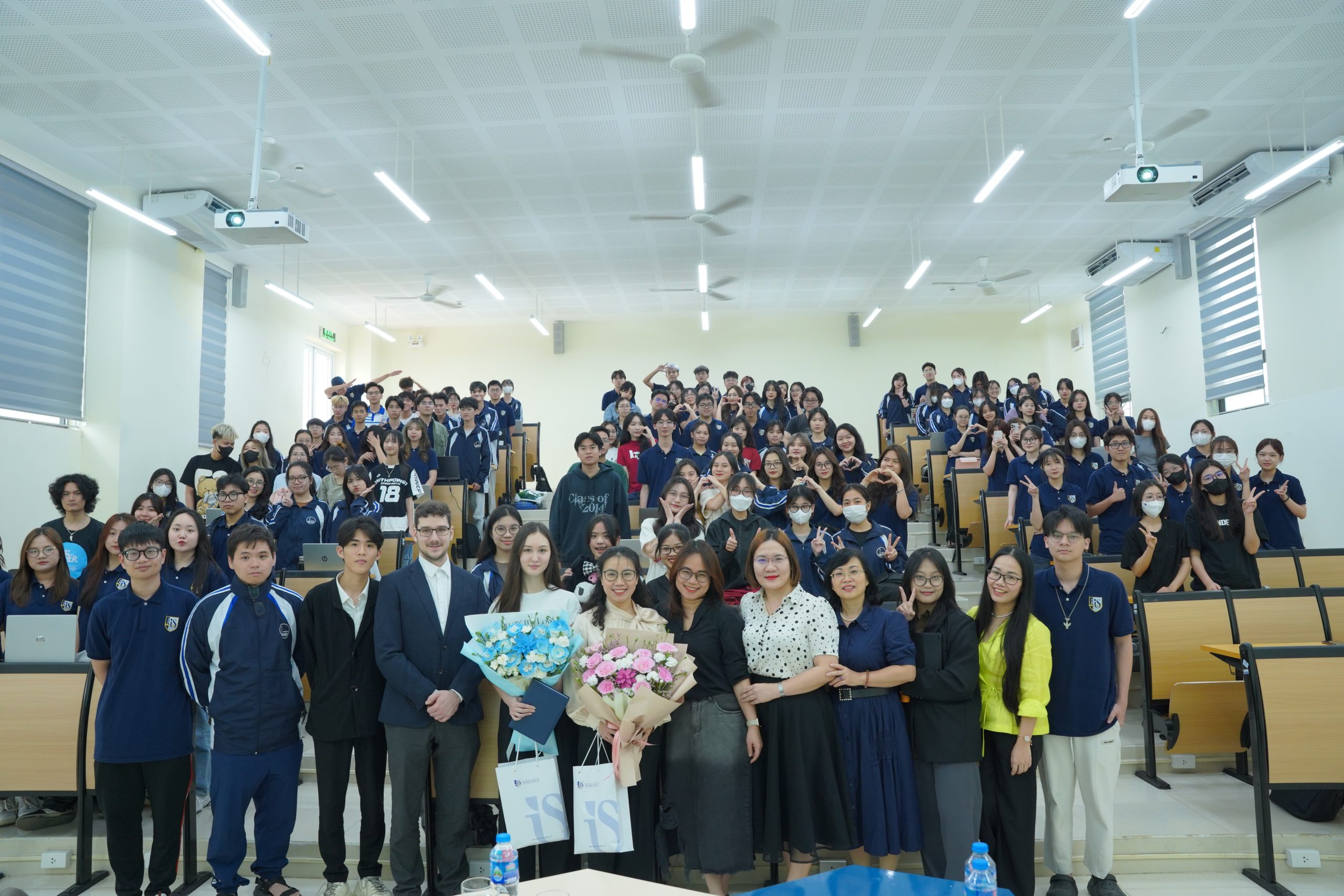The comprehension of multiculturalism and intercultural communication holds significant importance for Vietnamese students who are learning English as their second language. In order to effectively engage in cross-cultural communication, these students must develop intercultural communication skills.
Consequently, the English Language (Business – IT) program at the International School has incorporated a course on Intercultural Communication into its curriculum. This course aims to offer students a comprehensive understanding of the fundamental principles underlying multicultural and intercultural communication. By equipping students with this knowledge, the program prepares them adequately to thrive in diverse work environments in the future.

The course places a strong emphasis on cultivating values, fostering awareness, and promoting diverse behaviors within and across cultural backgrounds. It encourages students to engage in self-reflection and appreciate the significance of cultural diversity. By focusing on intercultural communication, the course not only enhances students’ language proficiency but also facilitates a profound comprehension of various cultural communities. It instills in students a sense of respect, empathy, and leadership, equipping them with the necessary skills to navigate situations that demand sensitivity to cultural differences. Ultimately, the course empowers students to thrive and excel in today’s increasingly interconnected and globalized world.

On April 5, 2024, the International School hosted a workshop titled “Navigating Globalization: Cultivating Intercultural Competence while Preserving Identity.” The event, which took place in a vibrant and enthusiastic atmosphere, was attended by students enrolled in the Intercultural Communication class of the English Language program. The event had the honor of hosting two distinguished guests: translator Le Hong Van and Chan Elina Lamovna, a third-year student pursuing a major in English Language at the International University. Their presence added further value and insight to the event, which focused on the crucial theme of developing intercultural competence while upholding one’s cultural identity.

During the discussion, translator Le Hong Van underscored the significance of intercultural competence in fostering harmonious and respectful relationships within a multicultural environment. She emphasized the need for individuals to develop a profound understanding of both themselves and others. Furthermore, she highlighted the importance of openness, empathy, and attentive listening in overcoming common obstacles like stereotypes and language barriers. Effective communication emerged as a vital and indispensable factor in navigating complex situations stemming from cultural differences. To successfully navigate these challenges and embrace cultural diversity, communication must be conducted with accuracy and clarity.
In addition, Elina, a mixed Vietnamese-Russian student, shared her personal journey of embracing her mixed heritage. She emphasized the relevance of this journey in today’s interconnected world, where preserving one’s personal identity has become increasingly crucial. Her narrative shed light on the significance of understanding and embracing diverse backgrounds and experiences in fostering a more inclusive and accepting society.

Ms. Le Hong Van further underscored the significance of personalization and the establishment of motivational relationships in the realm of intercultural communication. She emphasized that by acknowledging and embracing one’s own identity, individuals can forge genuine and meaningful connections with others. To support her point, she made reference to the renowned psychologist Carl Jung’s theory of the “collective unconscious.” This theory highlights that intercultural communication is not solely about comprehending and accepting the cultures of others but also necessitates understanding and accepting oneself. Drawing from her personal experiences, Ms. Van acknowledged that through cultural exchange and interactions with individuals from diverse cultural backgrounds, there exists an opportunity for mutual enrichment. She emphasized that by sharing, learning, and embracing diverse values, each person can experience personal growth and development within a multicultural environment.
Consequently, the enhancement of intercultural competence and the embrace of diverse cultures are imperative for individuals to thrive and succeed in today’s globalized world. This endeavor not only brings personal benefits but also plays a significant role in fostering the development and harmony of the global community as a whole. By cultivating intercultural competence, individuals become equipped with the skills and knowledge to navigate cross-cultural interactions, foster understanding, and build meaningful connections with people from diverse backgrounds. This, in turn, promotes mutual respect, cooperation, and collaboration on a global scale.
At the end of the workshop, the students from the Intercultural Communication class presented flowers and expressed gratitude to the two speakers for their time in exchanging and sharing valuable knowledge with the students of the International School.
Đào Thị Lan Anh, Lê Khánh Huyền, Vũ Hà Anh
BEL 2023
